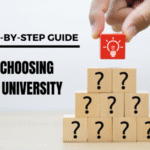In today’s increasingly globalized world, the appeal of pursuing higher education abroad has reached unprecedented heights. Many students dream of broadening their horizons by enrolling in top-tier institutions overseas. Choosing the right study abroad universities can significantly impact one’s academic success, career prospects, and personal development. But with thousands of universities worldwide offering a plethora of courses and opportunities, identifying the best study abroad universities can be a challenging endeavor.
This comprehensive article delves into the best universities to study abroad, exploring their strengths, unique offerings, and what makes them the preferred choice for international students. Whether you’re interested in the sciences, arts, engineering, business, or social sciences, this guide will help you navigate the landscape of study abroad universities to make an informed decision.
Key Takeaways
- Study abroad universities offer unparalleled academic and cultural experiences.
- Top destinations include the USA, UK, Canada, Australia, Singapore, and Europe.
- Factors such as academic reputation, support services, and financial aid are critical in choosing a university.
- International students benefit from exposure to global networks and career opportunities.
- Preparation, research, and openness to new cultures can enhance the study abroad experience.
- Scholarships and part-time work options help make education abroad more affordable.
- Cultural adaptability is key to making the most out of study abroad universities.
Why Choose to Study Abroad?

Choosing to study abroad is one of the most transformative decisions a student can make in their academic and personal life. Beyond acquiring a world-class education, studying abroad provides a broad range of opportunities that contribute to holistic development, global awareness, and long-term career success. Let’s explore in detail the key reasons why studying abroad—particularly at top-ranked study abroad universities—is such a compelling choice for students worldwide.
Access to World-Class Education
Many students choose to study abroad because of the access it provides to top-ranked universities known for academic excellence, cutting-edge research, and globally respected faculty. Institutions like Harvard, Oxford, Stanford, and the University of Melbourne set the standard for higher education and attract students from across the globe. These study abroad universities offer advanced curricula, innovative teaching methodologies, and industry collaboration that elevate the learning experience.
Exposure to International Perspectives
Studying in a different country allows students to learn from peers and professors with diverse backgrounds. This exposure to multiple viewpoints enhances critical thinking, fosters open-mindedness, and prepares students to work in international and multicultural environments. Study abroad universities often have a strong global focus in their curriculum, which is vital in today’s interconnected world.
Career Opportunities and Global Networking
One of the biggest advantages of studying at top study abroad universities is the access to global career opportunities. Many international institutions have strong ties with global industries, offering students internships, mentorship programs, and career fairs that connect them with multinational companies.
Additionally, students become part of a powerful alumni network spread across continents. These connections are invaluable when seeking internships, job placements, or mentorship in the future.
Development of Language and Communication Skills
For students studying in a country where a different language is spoken, immersion provides a practical, everyday opportunity to improve language skills. Even in English-speaking countries, international students often experience improved academic and professional communication. Most study abroad universities also offer language support centers, workshops, and tutoring to help students acclimate and succeed.
Cultural Immersion and Personal Growth
Living and studying in a foreign country naturally leads to cultural immersion. Students experience new traditions, cuisines, customs, and ways of life. This exposure fosters empathy, adaptability, and a deeper understanding of the world.
Moreover, being far from home encourages independence, resilience, and self-discovery. Navigating new environments, managing responsibilities, and solving problems without immediate family support leads to significant personal development—skills that are highly valued by employers.
Improved Academic and Research Opportunities
Many study abroad universities are at the forefront of innovation and research. Students often have access to state-of-the-art laboratories, libraries, and academic resources. They also have opportunities to collaborate with renowned researchers, engage in interdisciplinary projects, and publish their work—giving them a strong edge in both academic and professional arenas.
Enhanced Employability and International Job Markets
Graduates from leading study abroad universities often find themselves at an advantage in the job market. Employers value international experience because it signals that a candidate is adaptable, culturally aware, and capable of handling diverse work environments.
Additionally, several countries offer post-study work visas, allowing international graduates to gain professional experience after completing their studies. These opportunities are especially attractive to students seeking global exposure early in their careers.
Scholarship and Financial Aid Opportunities
Contrary to the common belief that studying abroad is only for the wealthy, many study abroad universities offer generous scholarships, assistantships, and grants to international students. From merit-based awards to country-specific scholarships, financial support can make studying abroad both accessible and affordable.
Universities in countries like Germany, Norway, and France even offer free or low-tuition education for international students, reducing the financial burden without compromising quality.
Global Citizenship and Broader Worldview
Studying abroad helps students become global citizens. They learn to appreciate cultural differences, build friendships across nationalities, and understand global issues from various perspectives. These experiences enrich students’ worldviews and inspire them to contribute meaningfully to global challenges such as climate change, inequality, and technology ethics.
Study abroad universities often emphasize these values through diverse programs, international student clubs, and community initiatives that promote inclusivity and awareness.
A Lifetime Experience
Beyond academics and career, studying abroad is often described by students as a life-changing experience. The combination of personal growth, adventure, and new friendships results in lifelong memories. Whether it’s exploring a historical city, hiking a mountain trail, or joining a cultural festival, the life outside the classroom at study abroad universities can be just as enriching as formal education.
Criteria for Selecting the Best Study Abroad Universities
When evaluating study abroad universities, several factors should be taken into account to ensure the choice aligns with your academic goals, financial situation, and personal preferences:
| Criteria | Description | Why It Matters |
|---|---|---|
| Academic Reputation | Global rankings (e.g., QS, THE), faculty expertise, research output, Nobel laureates. | Reflects the university’s quality and international prestige. |
| Program Offerings | Range and specialization of courses in your field of interest. | Ensures the university provides the right academic path for your career goals. |
| Accreditation & Recognition | Institutional and program-level accreditation by recognized bodies. | Validates the quality and international acceptance of your degree. |
| Faculty & Research Excellence | Faculty credentials, publications, grants, and lab facilities. | Provides access to cutting-edge research and expert mentorship. |
| Campus Facilities | Libraries, labs, student centers, dormitories, Wi-Fi, sports, and recreation. | Enhances your overall educational and campus life experience. |
| International Student Support | Visa assistance, orientation, language support, counseling, and student associations. | Helps international students adjust smoothly and thrive in a new environment. |
| Location and Environment | City size, safety, cultural diversity, weather, transport, and proximity to industries. | Affects lifestyle, safety, comfort, and access to internship or job opportunities. |
| Tuition Fees & Cost of Living | Annual tuition, housing, food, insurance, travel, and local expenses. | Determines financial feasibility and budget planning for your entire study period. |
| Scholarships & Financial Aid | Availability of merit- or need-based scholarships, fellowships, or assistantships. | Can significantly reduce financial burden for international students. |
| Admission Requirements | Entry tests (SAT, GRE, IELTS/TOEFL), academic records, portfolio, work experience. | Helps evaluate your eligibility and preparedness for admission. |
| Internship & Job Opportunities | Access to career services, internship placements, campus recruitment, work-study programs. | Boosts employability and builds relevant work experience during and after study. |
| Post-Graduation Work Visa | Availability and duration of work permits after graduation (e.g., OPT in the US, PSW in the UK, PGWP in Canada). | Provides a pathway to gain practical experience and explore job markets post-study. |
| Alumni Network & Global Reach | Active alumni community, global partnerships, notable alumni in industry and academia. | Offers networking opportunities and support in career advancement. |
| Language of Instruction | English, bilingual programs, or local language requirements. | Determines ease of learning and communication. English-medium programs are preferred globally. |
| Cultural Fit & Student Life | Diversity, clubs, festivals, on-campus life, inclusivity, and student satisfaction. | Affects your social integration, mental well-being, and personal development. |
| Global Rankings and Recognition | QS World Rankings, Times Higher Education (THE), ARWU (Shanghai Rankings). | Offers a benchmark for comparing the reputation and competitiveness of universities globally. |
| Industry Collaboration & Innovation | Partnerships with companies, research parks, entrepreneurship hubs, tech incubators. | Enhances exposure to real-world applications and boosts innovation and start-up potential. |
The Best Universities to Study Abroad

Harvard University, USA
Harvard University stands as a pinnacle of academic excellence and is among the most prestigious study abroad universities globally. Known for its rigorous curriculum, vast alumni network, and world-class faculty, Harvard offers unparalleled opportunities in fields such as law, business, medicine, and the arts. International students at Harvard benefit from numerous scholarships and extensive support services.
University of Oxford, United Kingdom
As one of the oldest universities in the world, the University of Oxford combines tradition with cutting-edge research. It is renowned for humanities, social sciences, and natural sciences. The collegiate system offers a close-knit community atmosphere for international students, making Oxford one of the most sought-after study abroad universities.
University of Toronto, Canada
Canada’s University of Toronto is a leader among study abroad universities for international students due to its diverse academic offerings and welcoming environment. Its emphasis on research, innovation, and inclusivity makes it a preferred destination for students worldwide.
Australian National University (ANU), Australia
The Australian National University is noted for its strong focus on research and policy studies. ANU attracts students who want to study abroad universities that emphasize social sciences, environmental studies, and engineering. Australia’s multicultural society further enriches the study abroad experience here.
National University of Singapore (NUS), Singapore
For students interested in studying in Asia, NUS is a premier choice. It is ranked among the top study abroad universities globally for engineering, technology, and business. Singapore’s strategic location as a business hub makes NUS an attractive destination for those aiming to build an international career.
University of Melbourne, Australia
Another top Australian institution, the University of Melbourne offers a broad range of courses with strong research output. It has a vibrant international student community and strong ties with industries worldwide.
University of Tokyo, Japan
Japan’s University of Tokyo offers excellent opportunities for students interested in technology, science, and cultural studies. The university supports international students with scholarships and language training, making it one of the top study abroad universities in Asia.
University of Cambridge, United Kingdom
Alongside Oxford, Cambridge is globally renowned for its academic rigor and tradition. It excels in STEM, humanities, and business disciplines and is favored by many international students looking for prestigious study abroad universities.
ETH Zurich, Switzerland
ETH Zurich is famous for engineering and natural sciences and consistently ranks as one of the best technical study abroad universities. Switzerland’s stable political environment and high quality of life attract many students seeking a rigorous academic experience.
University of California, Berkeley, USA
UC Berkeley is a leading public research university with a diverse student body and strong programs in technology, social sciences, and environmental studies. Its vibrant campus culture and innovation ecosystem make it a top choice for international students.
Regional Highlights of Study Abroad Universities
North America
The USA and Canada dominate as destinations for study abroad universities, with institutions like MIT, Stanford, and McGill University leading the way. The extensive research funding and opportunities for work experience are major draws.
Europe
Europe hosts many of the oldest and most prestigious study abroad universities, including the UK’s Russell Group universities, France’s Sorbonne, and Germany’s Technical Universities. The Erasmus+ program also facilitates student mobility within Europe.
Asia-Pacific
Countries like Australia, Singapore, Japan, and South Korea have invested heavily in developing their universities as global hubs. These study abroad universities are recognized for their innovative programs and international collaborations.
Middle East and Africa
Emerging hubs like the United Arab Emirates and South Africa are enhancing their study abroad universities to attract international students with competitive programs and scholarships.
Challenges Faced by International Students
While the benefits of study abroad universities are significant, international students may face challenges such as language barriers, cultural adjustments, homesickness, and financial constraints. Choosing universities that offer robust support systems is crucial for a successful experience.
Tips for Choosing the Best Study Abroad University
Selecting the right university to study abroad is a significant decision that can shape your academic journey, career path, and personal growth. With thousands of study abroad universities worldwide, making the best choice requires careful research and thoughtful consideration. Here are some essential tips to guide you through the process:
Identify Your Academic Goals and Interests
Start by clearly defining your academic interests and career goals. Ask yourself:
- What subject or field do I want to specialize in?
- Does the university offer strong programs and research opportunities in my chosen field?
- What specific courses, electives, or specializations are available?
Choosing study abroad universities that align with your academic aspirations ensures you receive the best education tailored to your goals.
Research University Reputation and Rankings
Look at global rankings like QS World University Rankings, Times Higher Education (THE), and Academic Ranking of World Universities (ARWU). While rankings are not the only factor, they provide insights into the academic quality and reputation of study abroad universities.
Focus on:
- Overall university ranking
- Subject-specific rankings relevant to your field
- Research output and faculty expertise
Consider Location and Environment
The location of your university plays a huge role in your study experience:
- Urban vs. rural campus
- Climate and weather conditions
- Safety and political stability
- Cultural diversity and social life
- Proximity to industries and job markets
Think about your lifestyle preferences and how the environment will impact your daily life and studies.
Evaluate Tuition Fees and Cost of Living
Budgeting is crucial when choosing among study abroad universities:
- Compare tuition fees and other academic costs
- Assess cost of living in the city (housing, food, transport)
- Explore availability of scholarships, grants, or financial aid for international students
- Factor in travel expenses and health insurance
Make sure the university fits your financial plan or that you can secure sufficient funding.
Check Admission Requirements and Language Proficiency
Review admission criteria carefully:
- Academic prerequisites (grades, standardized tests)
- Language requirements (IELTS, TOEFL, etc.)
- Deadlines and application procedures
Some study abroad universities may require additional documents such as portfolios, recommendation letters, or interviews, so prepare accordingly.
Look for International Student Support Services
Studying abroad involves adjusting to a new culture and academic system. Check if the university offers:
- Orientation programs for international students
- Language support and tutoring
- Counseling and mental health services
- Career counseling and internship assistance
- Student clubs and cultural integration activities
Strong support services can ease your transition and enrich your overall experience.
Consider Post-Graduation Opportunities
Think beyond your degree:
- Does the country offer post-study work visas or internships?
- How active is the university’s career center?
- Are there industry collaborations and campus recruitment events?
- What is the employability rate of graduates in your field?
Choosing study abroad universities with robust career services can boost your job prospects after graduation.
Connect with Current Students and Alumni
Reach out to current international students or alumni via social media groups, university forums, or official channels. Their firsthand experiences provide valuable insights about:
- Academic rigor and faculty accessibility
- Campus life and social opportunities
- Challenges faced and how to overcome them
- Internships and job placement support
Hearing from others can help set realistic expectations.
Attend Virtual Tours and Webinars
Many universities offer virtual tours, webinars, and info sessions that give you a feel for campus facilities, academic departments, and student services. Participate in these events to ask questions directly to admissions officers or faculty.
Prioritize Universities with Flexible Programs
Look for universities offering flexibility such as:
- Multiple start dates
- Options to switch majors or minors
- Exchange programs and study abroad options within the university
- Online or hybrid course options
Flexibility can help you adapt your study plan if needed.
Trust Your Instincts and Personal Preferences
Finally, after gathering all information, trust your gut feeling. Think about:
- Where do you feel most comfortable?
- Which university’s culture and values resonate with you?
- What environment will motivate and inspire you?
Your happiness and comfort are key to academic success.
Also Read :How Do I Choose the Best Course and University?
Conclusion
Choosing the best study abroad universities is a pivotal step towards building a successful and fulfilling academic journey. With so many options available worldwide, students must weigh their priorities carefully—academic rigor, cultural fit, financial feasibility, and career goals. From the historic halls of Oxford and Cambridge to the innovative campuses of NUS and Berkeley, study abroad universities offer diverse and enriching opportunities for students seeking to expand their global footprint.
The future belongs to global citizens, and selecting the right university abroad equips you not only with knowledge but also with the cultural competence and professional networks necessary for thriving in a connected world. With careful research and planning, your choice of study abroad universities can set the stage for lifelong success and adventure.
FAQs
Q1: What factors should I consider when choosing a study abroad university?
A: Consider academic reputation, course offerings, location, support services, tuition costs, and career opportunities.
Q2: Are study abroad universities expensive?
A: Costs vary widely depending on the country and institution. Many universities offer scholarships and financial aid to international students.
Q3: How can I apply for scholarships at study abroad universities?
A: Most universities have dedicated international student offices with information on scholarships. Research deadlines and application criteria carefully.
Q4: What support services do study abroad universities provide?
A: Services may include orientation programs, language support, counseling, housing assistance, and career guidance.
Q5: Is it necessary to learn the local language before studying abroad?
A: It depends on the country and program. Many universities offer courses in English, but learning the local language can enhance your experience.
Q6: Can I work while studying at study abroad universities?
A: Many countries allow international students to work part-time during their studies. Check the specific visa regulations.
Q7: How do I ensure a smooth cultural transition at a study abroad university?
A: Engage in orientation programs, join student clubs, seek counseling if needed, and be open to new experiences.



